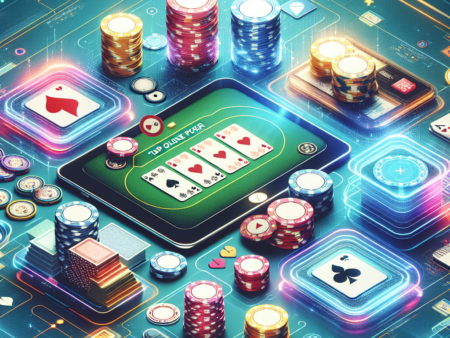In the vast realm of mobile gaming, where monetization strategies often lean on “free-to-play” models laden with paywalls and gacha mechanisms, Pokémon TCG Live presents a welcome reprieve—a chance to engage with the beloved trading card game without financial strings attached. But as both newcomers and nostalgic fans dip their toes into this digital recreation of the classic card game, the broader implications of Pokémon’s latest venture come to light.
The Zero-Cost Experience: Pokémon TCG Live
At its core, Pokémon TCG Live offers players a wholesome, free experience that can be deemed entirely safe for children. It allows them to enjoy the full 60-card deck battles without any need for purchasing in-game currency or cosmetic items. Unlike many competitors, this platform does not allow integration with payment options, making it impossible for players to spend real money, even if they wanted to.
Players can build their decks by redeeming codes found in physical Pokémon card packs, while bulk purchases of these codes are accessible at minimal costs from various retailers. This straightforward and low-cost entry allows families to leave their children to play without concern, knowing that the system doesn’t lead to unexpected charges on their credit cards.
The Gacha Gaming Phenomenon: Pokémon TCG Pocket
Contrasting sharply, Pokémon TCG Pocket introduces a myriad of in-game currencies and monetization tactics that are reminiscent of the gacha model—a format that encourages players to spend real money for a chance to obtain rare in-game items. This variant features a 20-card deck setup designed to induce spending through various currencies, rewards, and packs that often require players to shell out cash to enhance their gaming experience.
The initial gameplay loop is compelling, as new players quickly receive a deluge of currencies and chances to build their cards. But soon enough, that excitement gives way to a stark realization: deeper engagement with the game requires navigating an environment designed to encourage in-game purchases, otherwise known as real money for competitive advantage.
Grappling with Corporate Ethics
The disparity between Pokémon TCG Live and Pokémon TCG Pocket becomes even more prevalent when considering the implications of a franchise known for its child-friendly image diving headfirst into exploitative gaming mechanics. As the highest-grossing media franchise worldwide, Pokémon has a significant brand loyalty built amongst children and nostalgic adults alike. Thus, the introduction of gambling elements, particularly targeting a younger demographic, raises ethical questions.
Given the ongoing discussions surrounding gacha mechanics in gaming—especially the implications of encouraging children to engage with these monetary traps—it’s troubling that The Pokémon Company has ventured into this territory. While other franchises like Fortnite manage to present non-advantageous monetization strategies, Pocket presents a model that could easily lead to children unknowingly racking up thousands in charges.
Risks of Reputation: Greed vs. Goodwill
Analyzing the initial figures reveals the challenging terrain Pokémon TCG Pocket is navigating. With a reported revenue of $20 million in its first week, it’s evident that the app has struck a chord with players. But with a business model that pushes dangerously close to predatory practices, the long-term repercussions could overshadow immediate financial success.
Reports and observations from early adopters have raised alarms about the high cost of acquiring cards and the discontent regarding luck-based mechanics. Complaints about poor pulling rates—where players have to spend significant amounts before obtaining desired cards—highlight the potential for escalating frustrations among its audience, leading to negative feedback and damaging the brand’s reputation.
Alternatives and Solutions
Despite the backlash surrounding Pokémon TCG Pocket, the franchise offers an opportunity to reimagine its mobile gaming landscape. A model akin to Fortnite—where players can purchase battle passes for competitive advantages without the overwhelming pressures of gacha—could capture the essence of Pokémon while providing engagement strategies that foster goodwill rather than exploitation.
A robust system of in-game rewards could coexist with reasonable spending options, balancing corporate profits with player satisfaction. This way, parents won’t feel backed into a corner regarding their children’s gaming habits, creating an environment that prioritizes enjoyment over monetary exploitation.
Conclusion: The Dilemma of Industry Standards
As Pokémon finds itself at a crossroads, fans are left grappling with a question: Is Pokémon TCG Live’s no-cost charm overshadowed by the ethics of Pokémon TCG Pocket’s monetization model? The answer is nuanced and reflects a growing discourse within the gaming community regarding the balance of profit and integrity, especially when targeting younger players.
In a world saturated with gaming experiences vying for attention, Pokémon’s decisions will echo for years to come as it navigates the tumultuous waters of mobile gaming. Whether the company chooses to uphold the child-friendly values it is known for or leans into the lucrative allure of gacha mechanics remains to be seen. In the end, the future of Pokémon TCG lies within its ability to evolve—just like the Pokémon themselves.














